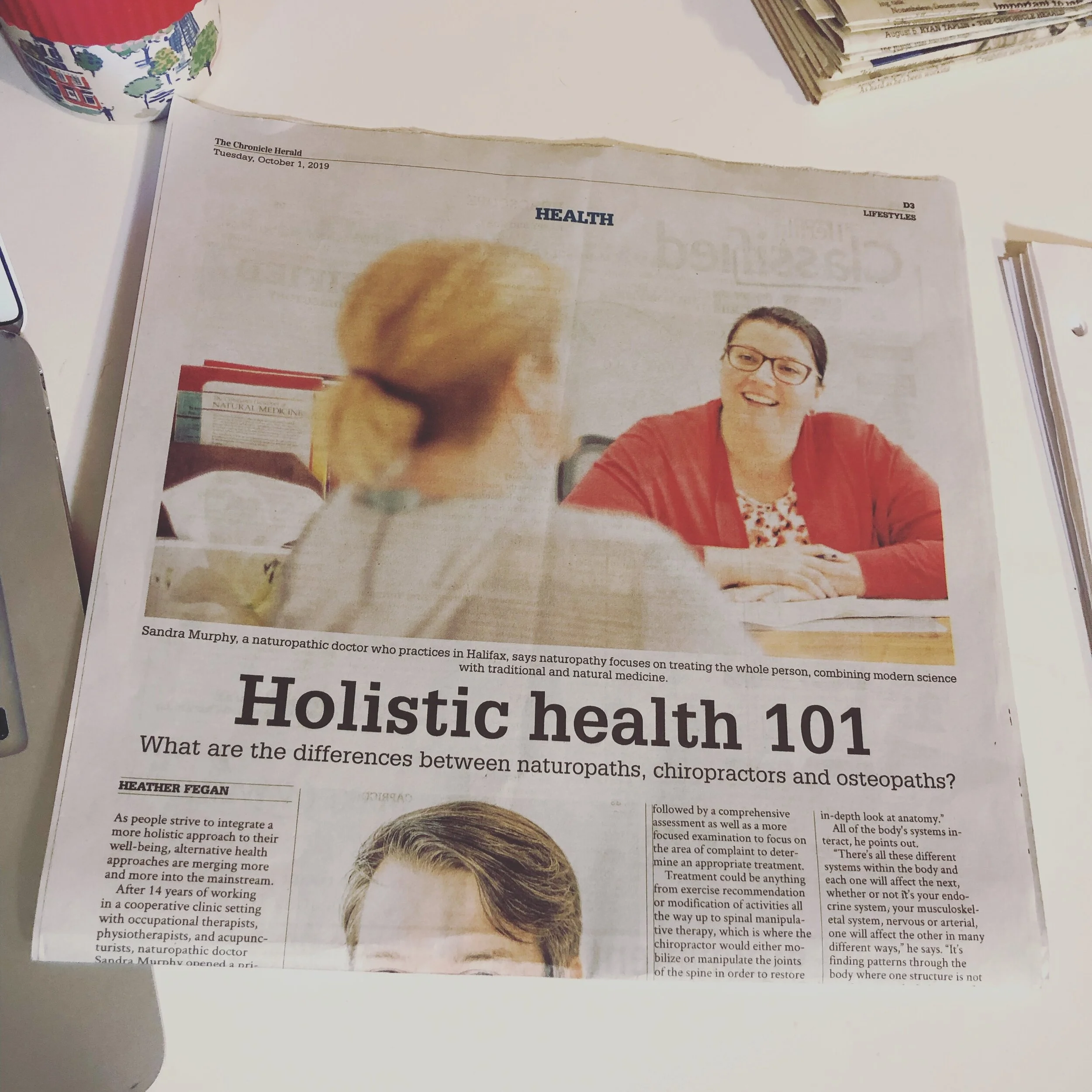Objectivity in Journalism: present the facts
/Why it’s important that we tell the whole story, present the facts, be unbiased, objective, and impartial in journalism.
I’ve written an article on the topic of holistic health, published the day after a disparaging piece on alternative medicine appeared in the National Post.
Little did I know the day before my article entitled “Holistic Health 101” was published in The Chronicle Herald (Tuesday October 1), that the National Post would print a piece headlined “Naturopathy is poised to ‘disrupt’ health-care status quo, proponents of controversial practice say”, with subtext: The commentary comes as an Alberta couples’ acquittal in their toddler’s death is raising fresh concerns about the rise in the use of alternative medicine
Now, I don’t want to go there. That story is heart-wrenching, extreme, tragic, and yes, I believe those parents were neglectful, naive, and irresponsible. They failed to provide the necessities of life for their son. This post is not about that. This post is about journalism.
Essentially the NP article is talking about the rising concerns of the use of alternative medicine. Rising concerns because the practice is “bad” is what the article is emphasising. I would argue that what is concerning is using ONLY alternative medicine. What bothers me is that the article is a sensationalised, one-sided attack article on a profession. It’s biased. That article doesn’t present any of the context I got out of my work.
I interviewed a lovely Naturopath, whom I was connected with through the Naturopathic Association of Nova Scotia. She was completely forthright that “the holistic healthcare model is meant to be in conjunction with our conventional medical care with our GP [general practitioner] at the helm.”
There is an obvious clash when you put the other article up against mine. The articles are conflicting in tone, yet my article is not trying to tell anyone whether holistic health care - including naturopathy - is good or bad or wrong or right. It’s sharing what holistic health care - including naturopathy - is. Informing (hopefully) readers about something new they might not know about or understand. So they can learn something. They won’t learn or understand anything impartial about naturopathy or alternative medicine from the other article, and I think that is damaging.
Listen, I’m sure there are NDs, or more specifically “naturopathy enthusiasts”, as the article quotes, who take things to the extreme and are careless and harmful, the awful story out of Alberta makes that case. And I’m sure there are GPs who do the same. But you can’t just lump everyone into the same category, dump on an entire profession, wipe your hands and call it a day. Especially when the time is not taken to properly educate yourself, or your readers, on the given topic.
Straight out of the gate, the writer of the National Post articles says “its [Naturopathy] practitioners have a “philosophical aversion” to prescription drugs.” Yet the ND I spoke with says they are not anti-drug. “If the medication is the best cure for that issue than I am pro-drug, 100 per cent.”
The National Post article defines naturopathy as “based on the supernatural, vitalistic belief that “nature cures” but my source says “Holistic health care incorporates all aspects of health in analyzing what’s happening...Naturopathic medicine is a unique primary health-care system that combines modern scientific research with traditional and natural medicine.”
The ND states “In an ideal world, everyone needs a naturopath and their GP,” and points out how unfortunate it is in Nova Scotia that a lot of people don’t even have access to a GP.
From the National Post piece: “For Caulfield and others, the idea of turning primary care over to naturopathic medicine is unnerving.'' Of course. But is that what a reliable Naturopath would intend?
Case in point- I sent my husband the National Post article and he was getting himself all worked up about alternative medicine and naturopathy and its associated apparent claims, as per the article. But then when I reminded him about my article, and the position it presented, he agreed it all sounded very reasonable. So what if he’d only read the other article? That’s what scares me.
From a journalistic standpoint, it’s so important that we tell the whole story. Present the facts. Be unbiased. Objective. Impartial. At the very least, hope that readers are aware of what they are reading and where it comes from.

